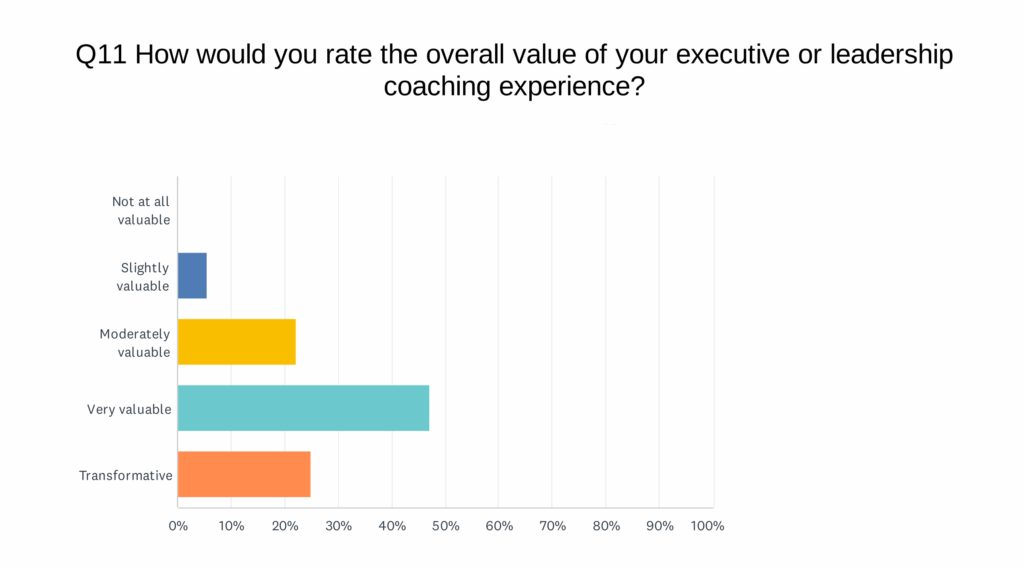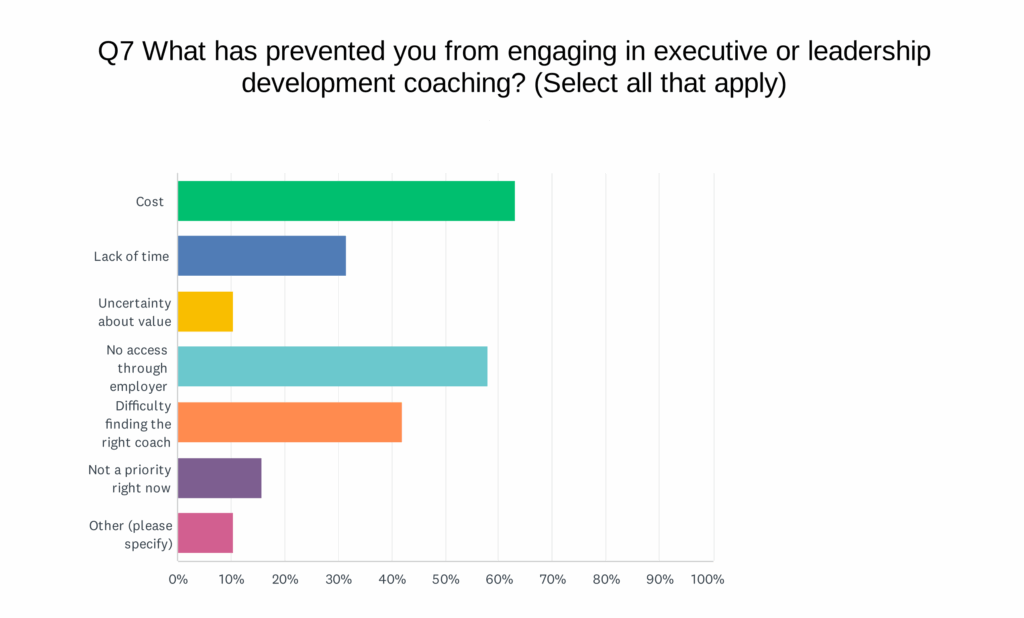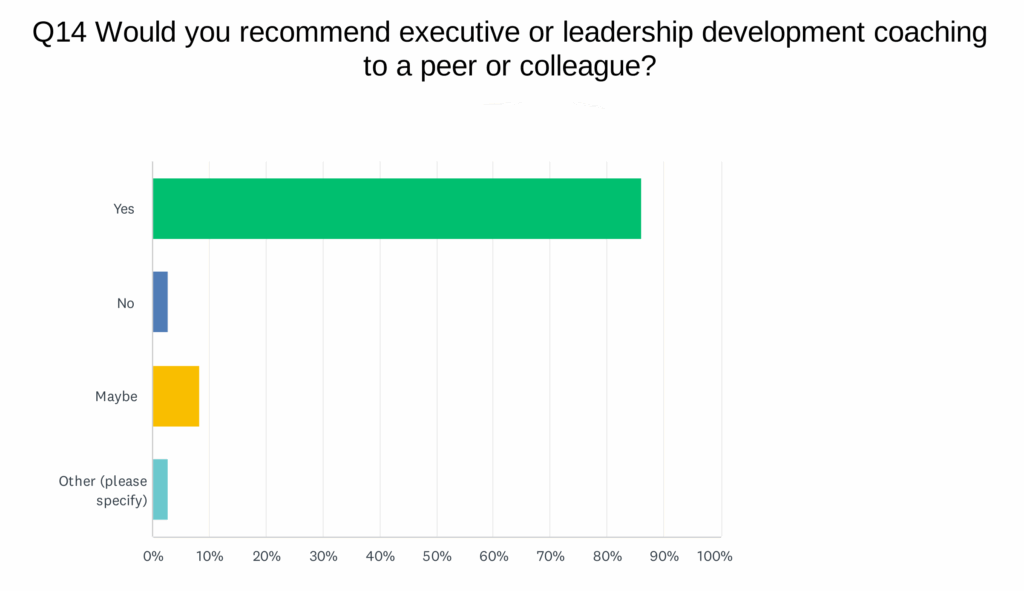ACJI Survey Reveals Big Gains from Executive Coaching in Justice Field
Leadership in the justice sector comes with profound responsibility, constant pressure, and complex human dynamics. Justice leaders are asked to deliver transformation while running on limited resources.
Executive coaching offers a powerful, evidence-based way to meet these challenges head-on. Here at the Alliance for Justice and Community Innovation, we’ve seen that firsthand and recently conducted a survey to learn more about how we could better serve leaders in the criminal/legal system through coaching. We share some of those findings with you below, but first, some background on coaching and the skills executive coaching fosters.
Emotional Intelligence: The Leadership Multiplier
Daniel Goleman’s research has shown that emotional intelligence (EI) accounts for nearly two-thirds of leadership effectiveness, far outweighing technical skills or intelligence. EI is not a soft skill, but a strategic leadership capability that shapes how leaders manage stress, build trust, make decisions, and influence culture.
- Regulate their emotions under pressure, avoiding reactive decision-making
- Foster psychological safety and stronger team cohesion
- Build trust and navigate conflict with greater skill
- Inspire innovation and adaptability in their organizations
Executive coaching is one of the most effective ways to develop these capacities because it provides personalized reflection, feedback, and support for real-world application. Through regular coaching sessions, leaders can examine their blind spots, experiment with new behaviors, and receive the accountability that drives lasting change.
What the Data Says: Evidence from the Justice Field
Recently, here at the Alliance for Community and Justice Innovation (ACJI), we surveyed 61 justice sector leaders to understand better what we see as a growing interest in executive coaching. The results were clear. There is a strong desire for executive coaching among justice system leaders.
Over 63% of respondents reported engaging in coaching at some point in their careers, and of those, nearly three-quarters rated their experience as “very valuable” or “transformative.”
- Improved confidence (50%)
- Enhanced communication and leadership skills (66.7%)
- Greater role clarity (22.2%)
- Better decision-making (52.8%)
These are precisely the kinds of leadership shifts that ripple through organizations, improving staff engagement, decision quality, and overall performance.
Leaders also named the coach’s active listening (41.7%) and thought-provoking questions (41.7%) as the most valuable qualities, underscoring the power of coaching to deepen reflection rather than simply providing advice.

Removing Barriers, Unlocking Potential
The survey results showed that many justice leaders expressed interest in coaching but noted barriers, including cost, time constraints, and uncertainty about access, with some respondents reporting they would prefer not to work with a coach employed by their organization.
Over half said they would pursue coaching if it were offered at no cost, or if they had a clearer understanding of its potential benefits. This highlights an opportunity for agencies and associations to embed coaching into leadership development strategies, as the private sector has done for years.
How to Match With the Right Coach
The Coaching Handout
At the 2025 APPA Training Institute in New York City, the ACJI team presented on our executive coaching survey findings and provided session participants with this Coaching Handout, which offers practical steps for identifying the right coach, clarifying goals, and building a coaching relationship that fits the justice sector context. It emphasizes that coaching is most powerful when there is clear alignment on goals, trust between coach and leader, and regular sessions over time.
Click Here to Download the PDF
Organizational Benefits: Beyond the Individual Leader
- Strengthen leadership pipelines and succession planning
- Enhance decision-making in high-stakes environments
- Support culture change and implementation of reforms
- Reduce burnout and increase resilience among leadership teams
- Model coaching behaviors that cascade to frontline supervision

A Call to Action for Justice Leaders
The justice system is evolving, and so must its leadership development strategies. Executive coaching is not a luxury, but a strategic investment in the people who shape policy, culture, and outcomes every day. By prioritizing coaching, justice organizations can equip their leaders to lead with emotional intelligence, clarity, and courage.
Now is the time to normalize coaching in the justice field—bringing it from the private sector into the public mission of safety, fairness, and community well-being.
To learn more about coaching from ACJI, contact us.





